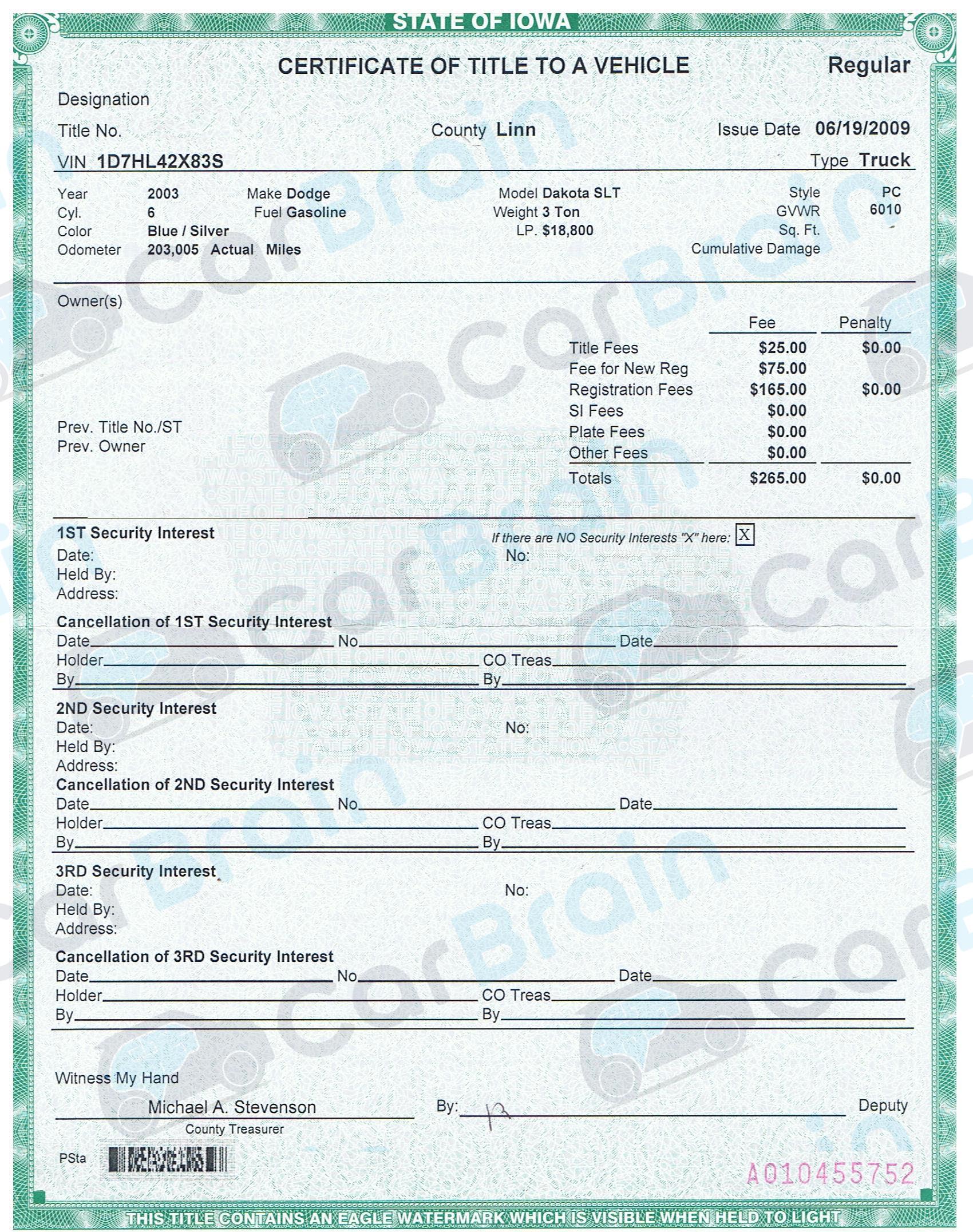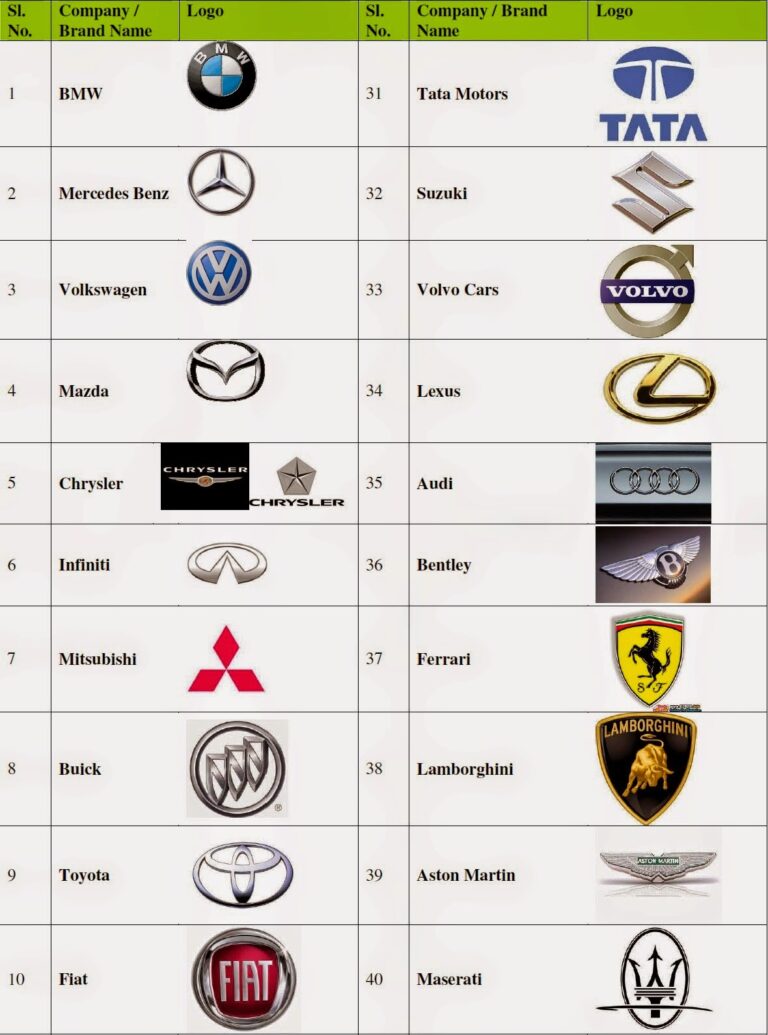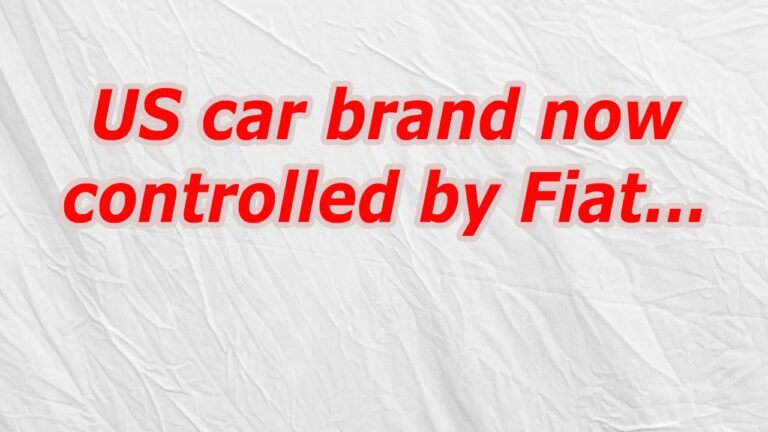Selling A Branded Title Car: A Comprehensive Guide
Selling A Branded Title Car: A Comprehensive Guide cars.truckstrend.com
Selling a car can be a straightforward process, but when that car carries a "branded title," the dynamics shift considerably. A branded title indicates that a vehicle has experienced significant damage, unusual history, or other circumstances that permanently affect its value and perceived reliability. Whether it’s been salvaged and rebuilt, involved in a flood, or deemed a "lemon" by the manufacturer, understanding how to navigate the sale of such a vehicle is crucial for a successful and legally sound transaction.
This comprehensive guide will walk you through every step of selling a branded title car, from understanding what these titles mean to preparing your vehicle, marketing it effectively, and closing the deal with transparency and confidence. Our goal is to equip you with the knowledge and strategies to maximize your car’s value and find the right buyer, despite its unique history.
Selling A Branded Title Car: A Comprehensive Guide
Understanding Branded Titles: What Are They and Why Do They Matter?
Before you even think about listing your car, it’s imperative to fully grasp what a branded title signifies. A vehicle’s title is essentially its legal birth certificate, and a "brand" is a permanent notation stamped on it by a state Department of Motor Vehicles (DMV) to disclose its past. These brands serve as a warning to future owners, affecting everything from resale value to insurance and financing options.
Common types of branded titles include:
- Salvage Issued when an insurance company declares a vehicle a "total loss" due to damage (e.g., accident, flood, fire, theft) and the cost of repairs exceeds a certain percentage of its actual cash value (ACV), typically 75-100%, depending on the state. A salvage title means the car is not roadworthy and cannot be legally driven until it’s repaired and re-inspected.
- Rebuilt/Reconstructed Once a salvage vehicle has been repaired to a roadworthy condition and passed a rigorous state inspection, its title can be re-branded as "rebuilt" or "reconstructed." This indicates it was once a total loss but is now safe to drive. This is often the most common branded title seen for sale to consumers.
- Flood Specifically indicates that a vehicle has sustained significant water damage, often to the point of submersion. Flood damage can lead to hidden electrical issues, rust, and mold, making these vehicles particularly challenging to sell and insure.
- Lemon Issued when a vehicle has persistent, unfixable defects that substantially impair its use, value, or safety, and the manufacturer has repurchased it under state "lemon laws."
- Hail Damage Indicates significant cosmetic damage from hail, often severe enough to be a total loss by insurance, but usually without structural or mechanical issues.
- Odometer Rollback Indicates that the vehicle’s odometer has been illegally tampered with to show fewer miles than actually driven. This is a severe brand, often associated with fraud.

Why do they matter? Branded titles inherently reduce a car’s market value, often by 20% to 50% or more compared to a clean title vehicle of the same make and model. They also raise buyer skepticism, complicate financing and insurance, and narrow your pool of potential buyers. Full disclosure is not just ethical; it’s legally mandated in most jurisdictions to prevent fraud.
The Challenges of Selling a Branded Title Car
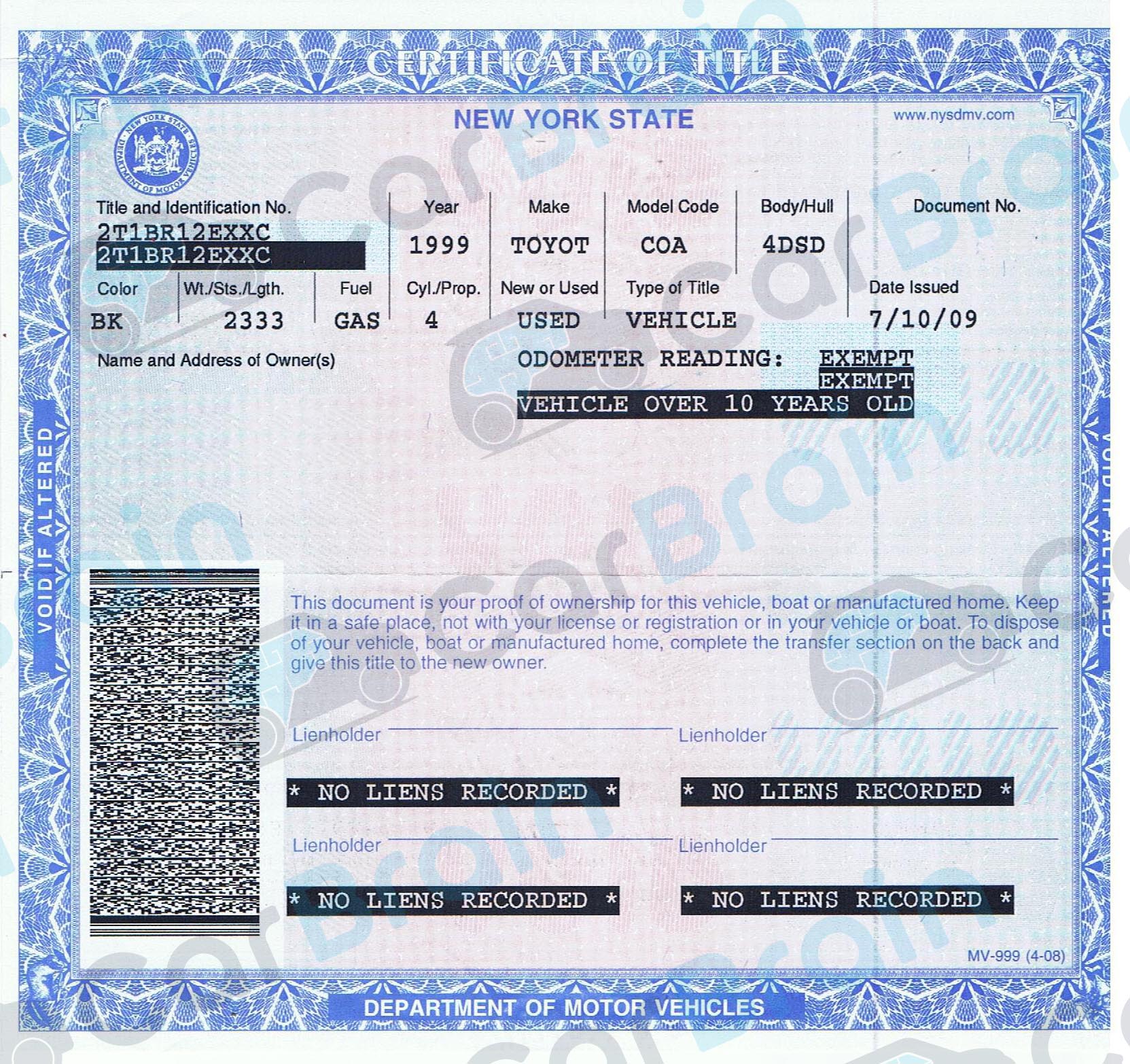
Selling a branded title car isn’t impossible, but it does come with unique hurdles:
- Lower Resale Value: This is the most significant challenge. Buyers expect a substantial discount due to the vehicle’s history and the perceived risks.
- Buyer Skepticism: Many buyers are wary of branded titles, fearing hidden problems, safety issues, or future difficulties with insurance and resale.
- Financing Difficulties: Lenders are often reluctant to finance branded title vehicles due to their reduced collateral value and higher risk. Most buyers will need to pay cash.
- Insurance Hurdles: While rebuilt title cars can generally be insured, some insurers may charge higher premiums or offer limited coverage (e.g., no comprehensive coverage), particularly for flood or salvage titles.
- Limited Market: Your target audience will primarily be budget-conscious buyers, mechanics, or those seeking a project car, rather than the general public.
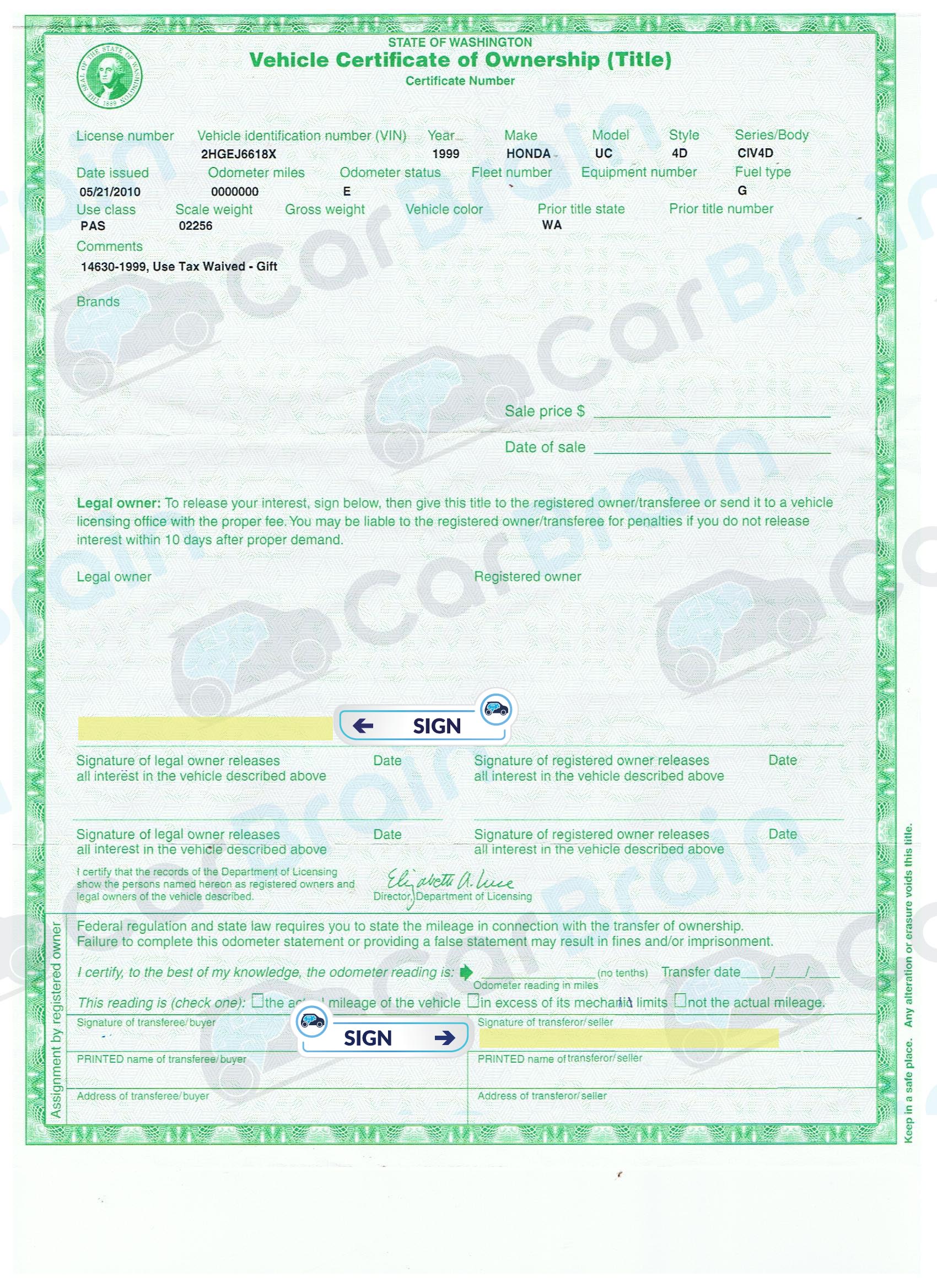
Preparing Your Branded Title Car for Sale
Thorough preparation is key to a successful sale. You need to build trust and demonstrate value.
1. Documentation is Key
Transparency starts with paperwork. Gather every document related to your car’s history and repairs:
- Original Branded This is non-negotiable. Ensure it’s in your name and free of any liens.
- Repair Records: For rebuilt titles, this is paramount. Compile detailed invoices, receipts, and even before-and-after photos of the damage and subsequent repairs. The more detailed and professional these records, the more confidence you instill.
- Inspection Reports: A recent pre-purchase inspection from a reputable, independent mechanic can be invaluable. For rebuilt titles, include the state inspection certificate that allowed it to be re-titled.
- Vehicle History Report (Carfax/AutoCheck): As the seller, you should provide this. It validates the title brand and often details the nature of the damage and repair timeline. It shows you have nothing to hide.
2. Mechanical Soundness and Safety
No matter the title, the car must be safe and reliable.
- Full Mechanical Inspection: Have a trusted mechanic perform a thorough inspection. Address any mechanical issues, even minor ones. Buyers will be extra cautious, so ensure everything works as it should.
- Fluid Checks and Maintenance: Ensure all fluids are topped off, tires are properly inflated, and basic maintenance (oil change, filters) is up to date.
- Safety Features: Verify all safety features (brakes, lights, airbags, seatbelts) are fully functional.
3. Cosmetic Presentation
First impressions matter, even for a branded title car.
- Thorough Cleaning and Detailing: A clean car suggests a well-cared-for car. Detail the interior and exterior, including cleaning the engine bay.
- Minor Cosmetic Repairs: If cost-effective, fix small dents, scratches, or interior tears. This shows attention to detail and reduces reasons for buyers to haggle.
4. Pricing Strategy
This is perhaps the most challenging aspect.
- Research Comparables: Look for other branded title cars of the same make, model, year, and mileage in your area. Websites like eBay Motors, local classifieds, and specialized auction sites (if they list rebuilt vehicles) can be good resources.
- Apply Deductions: Start with the clean title value (e.g., from Kelley Blue Book, Edmunds) and then apply a significant deduction based on the title brand (e.g., 20-50% for rebuilt, more for flood/salvage).
- Factor in Repair Quality: If your repairs were professional and extensive, you might be able to command a slightly higher price within the branded title range.
- Be Realistic and Flexible: Expect buyers to negotiate. Price it slightly higher than your absolute minimum to allow for negotiation.
Marketing and Listing Your Branded Title Car
Your marketing strategy must emphasize transparency and value.
1. Honest and Transparent Description
This is non-negotiable.
- Lead with the Brand: State the branded title type clearly in the very first sentence of your advertisement (e.g., "For sale: 2015 Honda Civic EX, Rebuilt Title").
- Explain the History: Briefly explain what caused the brand (e.g., "Salvage due to minor fender bender, professionally repaired and passed state inspection").
- Highlight the Repairs: Detail the major repairs performed, especially if you have receipts.
- Emphasize Value: Focus on the benefits: "Excellent value for money," "reliable daily driver," "significant savings compared to clean title models."
- Disclose Known Issues: If there are any lingering minor issues (even if not safety-related), disclose them. This builds trust.
2. High-Quality Photos
Take numerous, well-lit photos:
- Show All Angles: Exterior, interior, engine bay, trunk.
- Highlight Good Condition: Focus on showing the car’s overall cleanliness and condition.
- Consider Before & After: If you have photos of the damage and then the completed repairs, these can be incredibly persuasive.
3. Where to List
- Online Marketplaces: Craigslist, Facebook Marketplace, AutoTrader, eBay Motors are popular. Be prepared for inquiries from all over.
- Local Classifieds: Newspaper ads can still reach a specific demographic.
- Word-of-Mouth: Let friends and family know. Mechanics or DIY enthusiasts in your network might be interested.
4. Screening Buyers
- Expect Questions: Be patient and prepared to answer numerous questions about the title, repairs, and history.
- Prepare for Lowball Offers: Many buyers will test the waters with extremely low offers. Don’t be offended, just be firm if the offer is too low.
- Educate Potential Buyers: Some buyers may not fully understand branded titles. Take the time to explain the difference between salvage and rebuilt, and what your car’s specific brand means.
The Sales Process: From Inquiry to Transfer
Once you have interested buyers, the sales process for a branded title car requires extra care.
1. Communication and Inspections
- Be Accessible: Respond promptly and thoroughly to inquiries.
- Encourage Pre-Purchase Inspections: Actively suggest that the buyer have their own mechanic inspect the car. This builds immense trust and protects you from future claims.
- Offer Test Drives: Let serious buyers test drive the vehicle. Be present and answer questions.
2. Negotiation
- Have Your Documentation Ready: When a buyer is serious, have all your repair records, inspection reports, and the vehicle history report ready to present.
- Be Firm but Fair: Stick to your researched price range but be willing to negotiate within reason. Highlight the value proposition – a reliable car at a significant discount.
3. Finalizing the Sale
- Bill of Sale: Always use a detailed Bill of Sale. Clearly state:
- Vehicle information (VIN, make, model, year).
- Selling price.
- Buyer and seller information.
- Crucially: Explicitly state the branded title type (e.g., "Vehicle sold with a Rebuilt Title").
- Include an "as-is" clause, indicating no warranties are offered.
- Title Transfer: Follow your state’s specific procedures for transferring the title. Both buyer and seller typically need to sign the title.
- Remove License Plates: Take your plates off the car immediately after the sale.
- Notify DMV: Inform your state’s DMV of the sale to absolve yourself of liability for the vehicle.
- Payment: Accept secure payment methods like a cashier’s check from a reputable bank or cash. Avoid personal checks.
Table: Pricing Considerations for Selling a Branded Title Car
| Title Type | Estimated Value Deduction (from Clean Title) | Key Selling Points/Challenges | Target Buyer |
|---|---|---|---|
| Salvage | 50-70%+ | Not roadworthy; for parts or full rebuild; very limited market | Mechanics, parts buyers, those seeking a project |
| Rebuilt/Reconstructed | 20-50% | Roadworthy; must show comprehensive repair documentation & inspection; most common for consumer sale | Budget-conscious, value-seekers, those understanding mechanical work |
| Flood | 30-60%+ | High risk of hidden electrical issues, mold, rust; difficult to guarantee long-term reliability | High-risk takers, mechanics for parts/extensive repair, export |
| Lemon | 15-30% | Specific defect disclosed; may have warranty concerns; often low mileage | Buyers seeking a discount, willing to manage the specific disclosed issue |
| Hail/Cosmetic | 10-25% | Damage often superficial; less mechanical risk; visible flaws | Value-seekers who don’t mind cosmetic imperfections |
Note: These are estimated deductions. Actual value depends heavily on the specific vehicle, extent of damage/repair, and market demand.
Frequently Asked Questions (FAQ)
Q: Is it legal to sell a branded title car?
A: Yes, absolutely, as long as you fully and honestly disclose the branded title status to the buyer before the sale. Most states require this disclosure by law.
Q: How much less is a branded title car worth compared to a clean title one?
A: Typically, a branded title car sells for 20% to 50% less than a comparable clean title vehicle. The exact discount depends on the type of brand, the quality of repairs, the vehicle’s make/model, and market conditions.
Q: Can a buyer get insurance for a branded title car?
A: Yes, in most cases, a car with a rebuilt title can be insured. However, some insurance companies may be hesitant, charge higher premiums, or offer limited coverage (e.g., only liability, not comprehensive or collision), especially for flood or active salvage titles. Buyers should always check with their insurer.
Q: Can a buyer get financing for a branded title car?
A: It is very difficult to obtain traditional financing for a branded title car. Most lenders consider them too risky due to their diminished value and potential for hidden issues. Buyers typically need to pay cash or secure a personal loan.
Q: Do I have to disclose the branded title to a potential buyer?
A: Yes, absolutely. It is legally required in most jurisdictions to disclose the branded title status. Failure to do so can lead to legal action for fraud, civil penalties, and potentially having to take the car back and refund the buyer.
Q: What documents should I provide to the buyer?
A: At a minimum, you should provide the branded title (signed over to the buyer), a detailed Bill of Sale, and ideally, a vehicle history report (like Carfax or AutoCheck) and all repair records (especially for rebuilt titles).
Q: Should I get a pre-sale inspection for my branded title car?
A: Highly recommended. An independent pre-sale inspection provides an unbiased assessment of the car’s condition, verifies the quality of repairs, and significantly boosts buyer confidence.
Conclusion
Selling a branded title car demands patience, preparation, and, above all, unwavering transparency. While the journey may be more challenging than selling a clean title vehicle, it is entirely feasible. By thoroughly understanding your car’s history, meticulously documenting its repairs, presenting it in its best possible light, and being upfront with every potential buyer, you can overcome skepticism and find the right individual who appreciates the value proposition a branded title car offers.
Remember, honesty builds trust, and trust is the cornerstone of any successful sale. With the right approach, your branded title car can find a new home, providing its next owner with reliable transportation at a more accessible price point.
